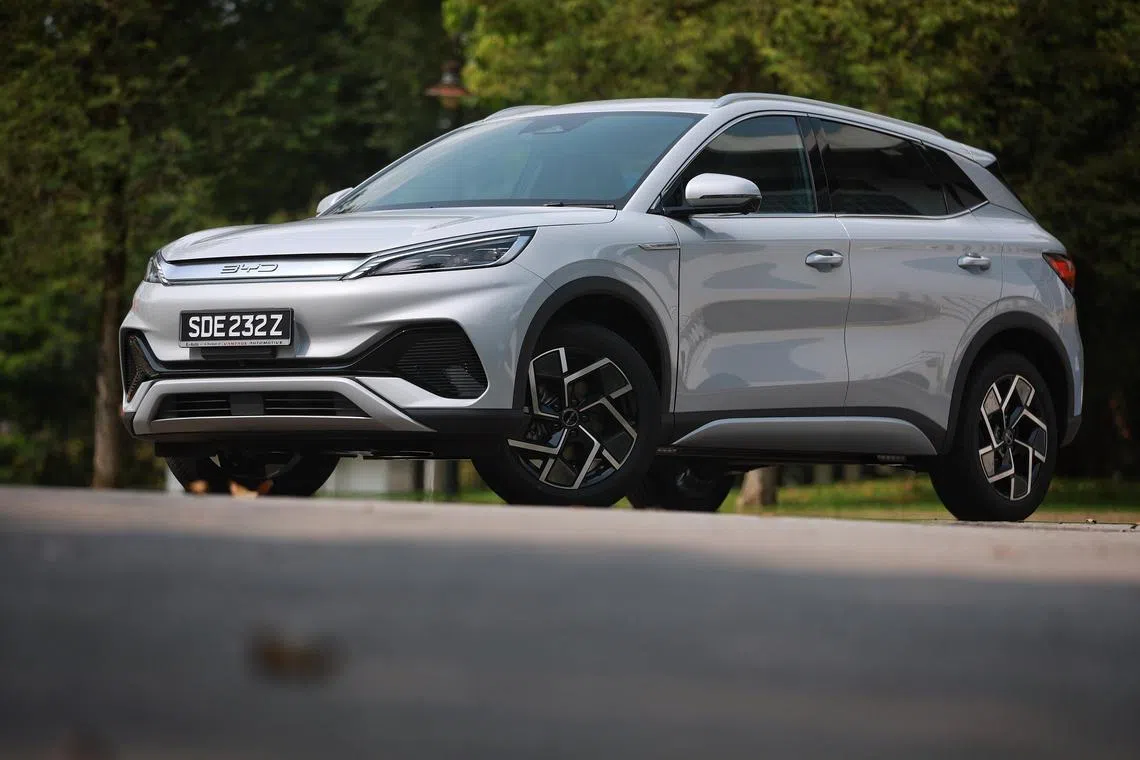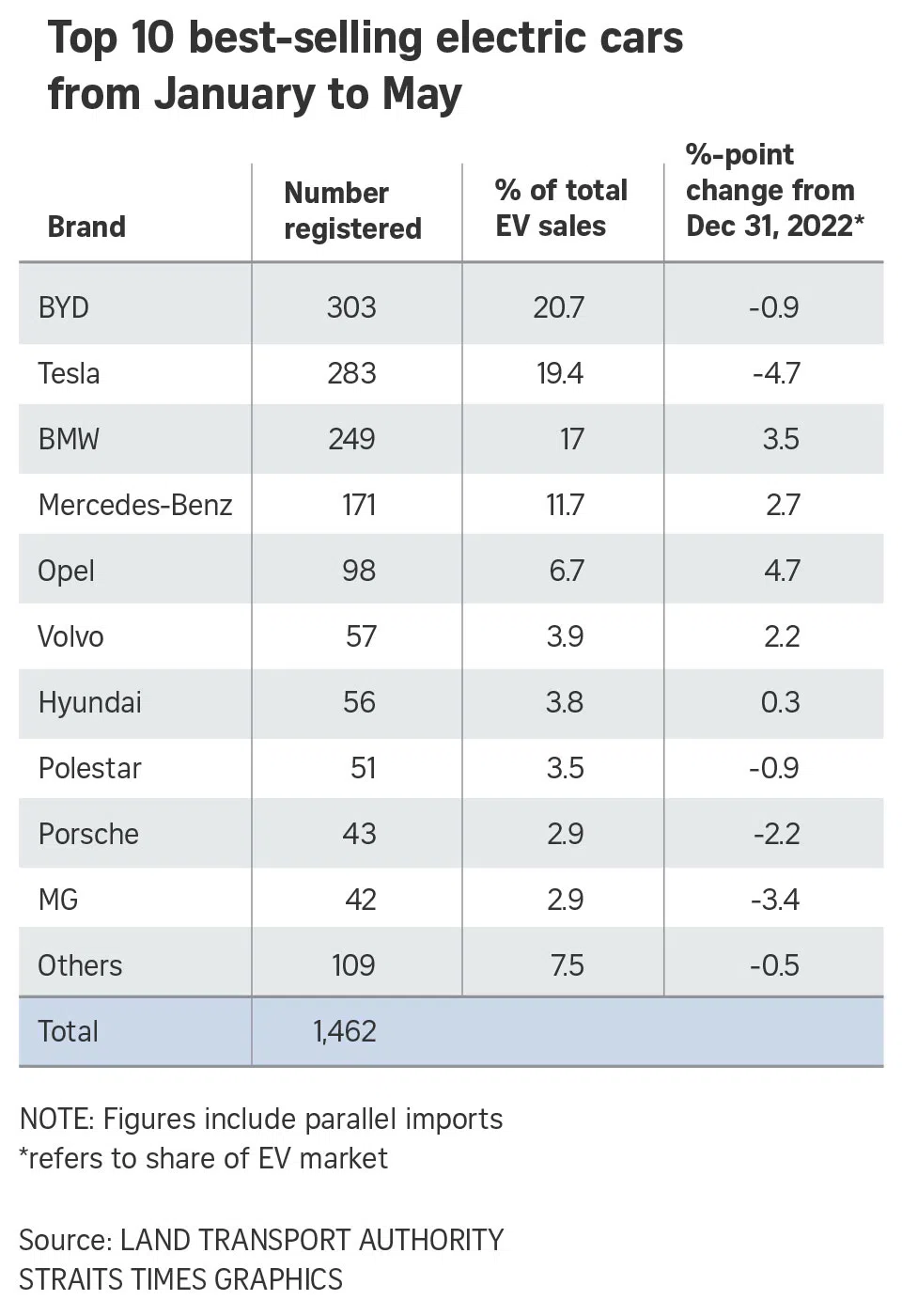BYD zooms past Tesla to become S’pore’s best-selling electric vehicle brand
Sign up now: Get ST's newsletters delivered to your inbox

The 100kW BYD Atto 3, which qualifies for the less costly Category A certificate of entitlement.
PHOTO: ST FILE
Follow topic:
SINGAPORE - The year is going well for Chinese electric carmaker BYD, which zoomed past the United States’ Tesla in the first five months of 2023 to become Singapore’s best-selling battery-powered brand.
According to fresh statistics from the Land Transport Authority (LTA), BYD registered 303 electric cars from January to May, followed by Tesla (283) and BMW (249).
About 20 per cent of BYD sales were to private-hire operators.
Newcomers to the top 10 bestsellers’ list were Opel and Volvo.
Opel replaced the Bluecar in electric car-sharing company BlueSG, as supply for the latter has ceased.
Volvo, in sixth position, displaced Audi, which was the 10th best-selling electric vehicle (EV) brand in 2022.
Half of the top 10 bestsellers suffered a dip in market share, with Tesla posting the biggest drop of 4.7 percentage points. Observers said this could be because some of the novelty associated with the brand has waned, and stronger competition from other EV brands.
The trend is not unique to Singapore. Reuters reported in April that Tesla’s share of EV sales in California – one of its sales strongholds – had fallen to 59.6 per cent in the first quarter, down from 72.7 per cent for full-year 2022. This was despite the EV maker having cut prices six times in the year.
This prompted Tesla to start advertising for the first time in its 20-year history,
According to the LTA figures, 1,462 electric cars were registered in the first five months of 2023, accounting for 13.4 per cent of total registrations – up slightly from 11.7 per cent in 2022.
There were 7,961 electric cars on the road as at end-May, accounting for just 1.2 per cent of the total car population.
For the first time, LTA had itemised parallel import registrations. Parallel imports are vehicles sold by non-authorised retailers, who source their cars from dealers in overseas markets.
In the first five months of 2023, parallel imports accounted for 21.7 per cent of car registrations, holding steady from 20.6 per cent in 2022. Their share of Toyota sales grew, while their share of Mercedes-Benz sales fell.
Parallel importers, however, have a far weaker hold of the EV market, with only a 1.6 per cent share compared with 17.1 per cent by authorised agents.
Mr Neo Nam Heng, chairman of diversified motor group Prime, said there were three main reasons for this.
“One, the Japanese domestic models, which parallel importers target, have a different charging system. Two, many of the manufacturers are not able to provide total power output figures required by the authorities here. And three, a lack of back-up technical service,” he said.
Most of the European EVs come with periodic software updates, which are done over the air. These updates are not available to most parallel imported cars.



